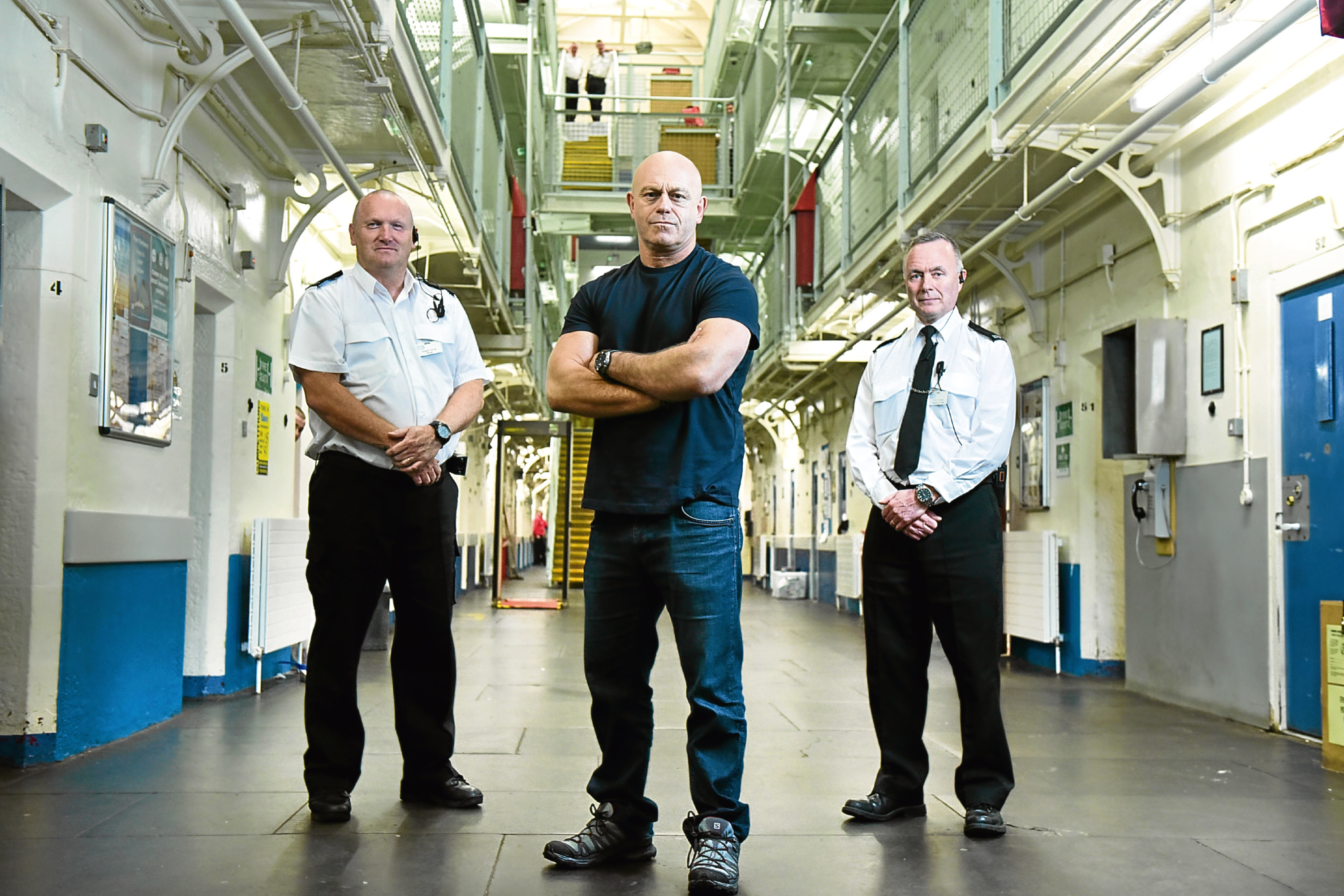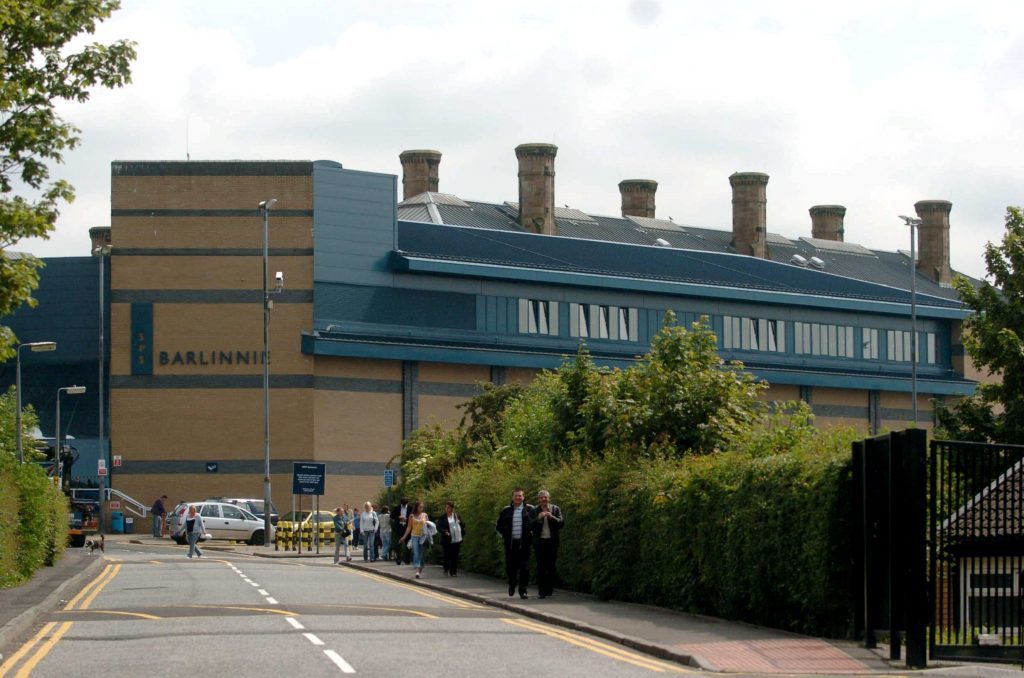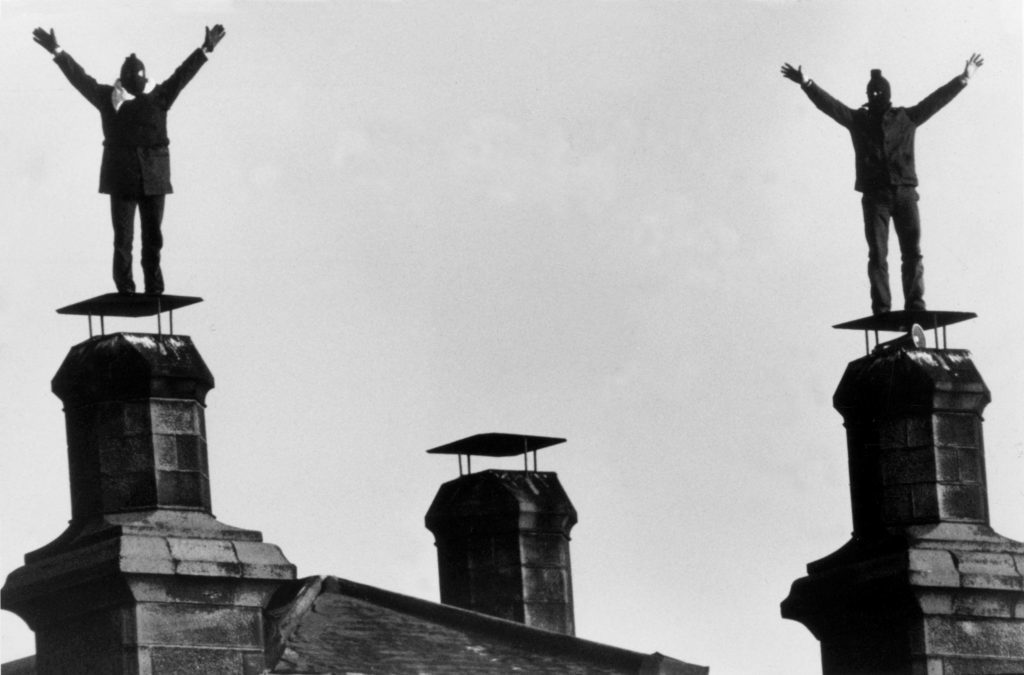
ROSS KEMP has been to some of the most dangerous places on earth.
The actor has boldly gone where most would fear to tread, from detailing devastation in the war zones of Afghanistan and Syria to confronting gun-toting gangsters in Las Vegas and New Orleans.
However, Kemp admits that going behind the bars of Scotland’s Barlinnie prison was something special.
He filmed in the Glasgow jail as part of ITV’s Crime and Punishment season.
Kemp said: “I’ve been to Afghanistan a number of times and last year I was in Libya, Syria and Iraq and this wasn’t like going into a prison in El Salvador or Venezuela.
“So I have been to lots of scary places. But there is an edge to Barlinnie.
“It has a reputation for a reason and Glasgow is a tough town with some tough people in it. I like the city’s reputation, but I had to do a self defence course before I went in.
“There’s always a propensity for violence in prisons as a lot of inmates don’t consider the results of their actions.”
To get a flavour of life as an inmate, Ross was put through a prisoner’s admission process on arrival at the jail.
“I was handcuffed, had my photograph taken and was asked about my mental health.
“I then had to strip naked below the waist to make sure I didn’t have anything secreted.
“Standing there with someone wearing a uniform looking at you is humiliating.”
Despite the prison’s reputation, Ross says he was, on the whole, warmly welcomed.
He got used to being called Grant after his EastEnders character and when banter turned to abuse, other inmates stepped in.
“At one stage someone was screaming at me when I was in the exercise yard. Then a guy who clearly had some clout told him in so uncertain terms to be quiet as I was only doing my job.”
His programme – screened at on ITV at 9pm on Thursday – investigates how drugs and mobile phones are smuggled into jails, from being concealed in body cavities to being thrown over the walls.
The drug problem at Barlinnie, is so bad, prisoners get through 100 litres of methadone a week, making it Europe’s largest dispenser of the heroin substitute.
Drugs are also smuggled inside the jail in increasingly ingenious ways. Children’s paintings, supposedly taken in to cheer up inmates, had been found to have Valium in the blue skies.
And now-illegal highs were sprayed on love letters sent in to inmates who then cut them up and sold them to other prisoners to smoke.
He said: “I was told dog ball-throwers were used. If you see someone practicing with one on a field with no dog around, they’re only doing it for one reason.
“The drugs go for five times what they do on the street, so some people go to prison on purpose, smuggling in, to make money.”
Ross, best known in recent years for his Extreme World documentaries for Sky, also discovered the ever-present sense of violence
Violence in British prisons hit record levels in 2016 with more than 7000 assaults on staff and over 20,000 prisoner-on-prisoner attacks.
In 1987, Barlinnie, known as the Bar-L, was the scene of major rioting which inmates claimed was sparked by prison officer brutality.
Ross says times have changed.
“Gone are the days when prison officers took you into a cell and gave you a beating,” he said.
“But the days when another prisoner will slash you aren’t gone. Or you might be met in the showers with a 12in piece of Perspex that’s been sharpened into a point.
“I saw a lot of people with life-changing head injuries.”
Ross, 53, also told of his revulsion at meeting child sex offenders.
He came face-to-face with a man jailed for viewing online images of children being sexually assaulted and said: “I did find the interview very difficult.
“He didn’t feel he’d done anything wrong because he’d never actually touched a child. I found that very hard to cope with, as a father.
“He’ll be at liberty in the not too distant future and I have to question if that’s a good thing.”
Sex offenders are the fastest-growing group of inmates and the wing they are held in at Barlinnie houses up to 280 prisoners.
That’s four times as many as a decade ago.
They are housed in E Hall and Ross says it’s unlike any of the other parts of the 135-year-old prison which holds around 1250 prisoners.
“It sounds different and it smells different. B Hall has the sweet smell of roadkill, crossed with cabbage, old school dinners and blocked drains.
“E Hall doesn’t have any of those smells and there’s no sound of doors being kicked or the occasional shouts and screams.
“I just heard the faint sound of classical music leaking out from behind one of the cell doors.”
Latest figures in Scotland show that almost 30% of prisoners re-offend within a year of their release.
And that rises to 60% with prisoners sentenced to three months or less.
The programme features inmates for whom prison has become such a way of life that they would repeatedly get into trouble to get back inside.
“We wanted to ask if prisons work and what is their purpose,” said Ross, who has four children, including three with wife Renee O’Brien.
“Why has the prison population doubled in the last 25 years?
“And why do we have a revolving door prison system that costs us a fortune?
“It costs £36,000 a year to keep someone in prison and that’s way above what we pay a junior prison officer to go in and risk an assault every day.
“But if anyone thinks it’s an easy life for a prisoner, then think again. I’m telling you that you don’t want to end up in prison.”

Enjoy the convenience of having The Sunday Post delivered as a digital ePaper straight to your smartphone, tablet or computer.
Subscribe for only £5.49 a month and enjoy all the benefits of the printed paper as a digital replica.
Subscribe

